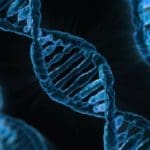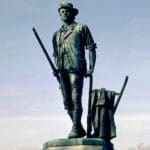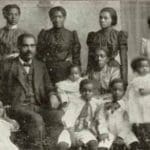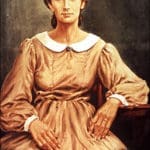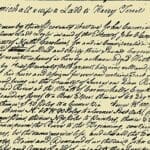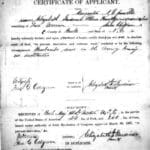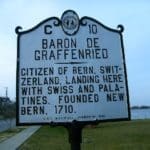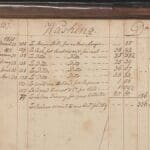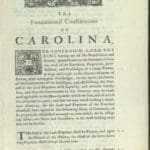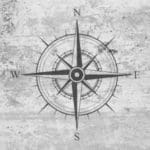The following are complete webinar recordings. Click on the title of the webinar to visit that page for online viewing. The PDF handout for the webinar is available for download on the same page.
A complete listing of all handouts, with links, are available on the Member Webinar Handouts page.
Recordings of live webinars will be added to this page, typically two to three weeks after the live presentation.
- DNA Testing: The Three Types We Use in Genealogy Research
 — Presented by Katherine D. Benbow, BA, MSW, LCSW — Choosing the right DNA test depends on the question you are trying to answer about your ancestry. This presentation will provide an overview of the three types of DNA testing for genetic genealogy purposes.
— Presented by Katherine D. Benbow, BA, MSW, LCSW — Choosing the right DNA test depends on the question you are trying to answer about your ancestry. This presentation will provide an overview of the three types of DNA testing for genetic genealogy purposes. - Finding a North Carolina Revolutionary War Ancestor
 — Presented by Craig R. Scott, CG, FUGA — North Carolinians were active participants in the Revolutionary War, providing men, supplies, and support for the revolutionary cause. Records were created before, during, and after the war.
— Presented by Craig R. Scott, CG, FUGA — North Carolinians were active participants in the Revolutionary War, providing men, supplies, and support for the revolutionary cause. Records were created before, during, and after the war. - Finding Black Roots in a White World
 — Presented by J. Mark Lowe, CG, FUGA — Learn how to find African American family members in the pre-1870 United States. Utilize the tools and techniques that will help you identify and find resources to lead you to a family.
— Presented by J. Mark Lowe, CG, FUGA — Learn how to find African American family members in the pre-1870 United States. Utilize the tools and techniques that will help you identify and find resources to lead you to a family. - Finding Women: Maiden Name Not Known
 — Presented by Craig R. Scott, CG, FUGA — Learning the maiden name of a wife can be one of the more difficult tasks in genealogical research. When a maiden name is hard to find you may have to learn it through the records of the men in her life.
— Presented by Craig R. Scott, CG, FUGA — Learning the maiden name of a wife can be one of the more difficult tasks in genealogical research. When a maiden name is hard to find you may have to learn it through the records of the men in her life. - Finding, Understanding, and Using Deeds in Your Research
 — Presented by David McCorkle — Deeds are extremely useful in genealogical research for determining time and place, relationships, neighbors, wealth, occupations, and more. They are also the most voluminous records you’ll encounter dating from before the founding of North Carolina up to right now, and deeds for a specific property can be scattered amongst ...
— Presented by David McCorkle — Deeds are extremely useful in genealogical research for determining time and place, relationships, neighbors, wealth, occupations, and more. They are also the most voluminous records you’ll encounter dating from before the founding of North Carolina up to right now, and deeds for a specific property can be scattered amongst ... - Freedmen’s Bureau Records
 — Presented by Diane L. Richard, MEng, MBA — Are you seeking records for your southern ancestors in the immediate post Civil War time period (1865-1868)? Learn about this little known and used Federal record collection that is full of invaluable records for many ancestors, regardless of skin color or ...
— Presented by Diane L. Richard, MEng, MBA — Are you seeking records for your southern ancestors in the immediate post Civil War time period (1865-1868)? Learn about this little known and used Federal record collection that is full of invaluable records for many ancestors, regardless of skin color or ... - German Settlement of North Carolina
 — Presented by Victor T. Jones, Jr — This webinar will discuss the Swiss and German colony of 1710 around New Bern and the Moravian and Pennsylvania Dutch settlements through the Piedmont (including Salem), while briefly touching on the resources to help discover your North Carolina-German ancestor.
— Presented by Victor T. Jones, Jr — This webinar will discuss the Swiss and German colony of 1710 around New Bern and the Moravian and Pennsylvania Dutch settlements through the Piedmont (including Salem), while briefly touching on the resources to help discover your North Carolina-German ancestor. - Get Lost in Ledgers – The Unique Looking Glass into Our Ancestors’ Lives
 — Presented by Diane L. Richard, MEng, MBA — Business/organization ledgers document everyday business transactions that involved North Carolinian families. This webinar focuses on the many kinds of ledgers used by North Carolina businesses and highlights where we can locate these ledgers and what we can learn from them.
— Presented by Diane L. Richard, MEng, MBA — Business/organization ledgers document everyday business transactions that involved North Carolinian families. This webinar focuses on the many kinds of ledgers used by North Carolina businesses and highlights where we can locate these ledgers and what we can learn from them. - How Old Did He Have To Be…?
 — Presented by Judy G. Russell, JD, CG®, CGLSM — Knowing a person’s age is often the key to distinguishing between two people of the same name. But if no record gives a birth date, how do you know how old someone was? The law can often give the answer.
— Presented by Judy G. Russell, JD, CG®, CGLSM — Knowing a person’s age is often the key to distinguishing between two people of the same name. But if no record gives a birth date, how do you know how old someone was? The law can often give the answer. - Identifying Robert Walker’s Ancestry
 — Presented by Pam Stone Eagleson, CG — Robert Walker of Rockingham County, North Carolina, and Orange County, Indiana, vanished without a trace in 1829. This webinar will discuss what the records (census, probate, land), etc. revealed … and how the evidence supports the conclusion.
— Presented by Pam Stone Eagleson, CG — Robert Walker of Rockingham County, North Carolina, and Orange County, Indiana, vanished without a trace in 1829. This webinar will discuss what the records (census, probate, land), etc. revealed … and how the evidence supports the conclusion.

